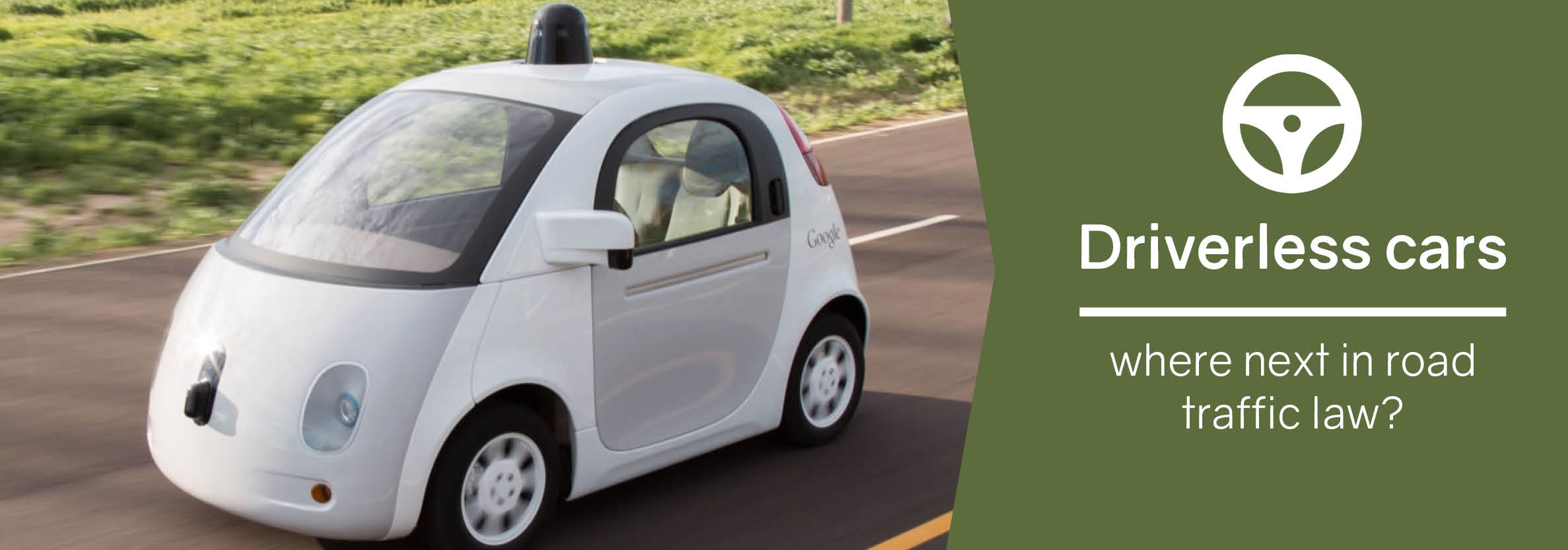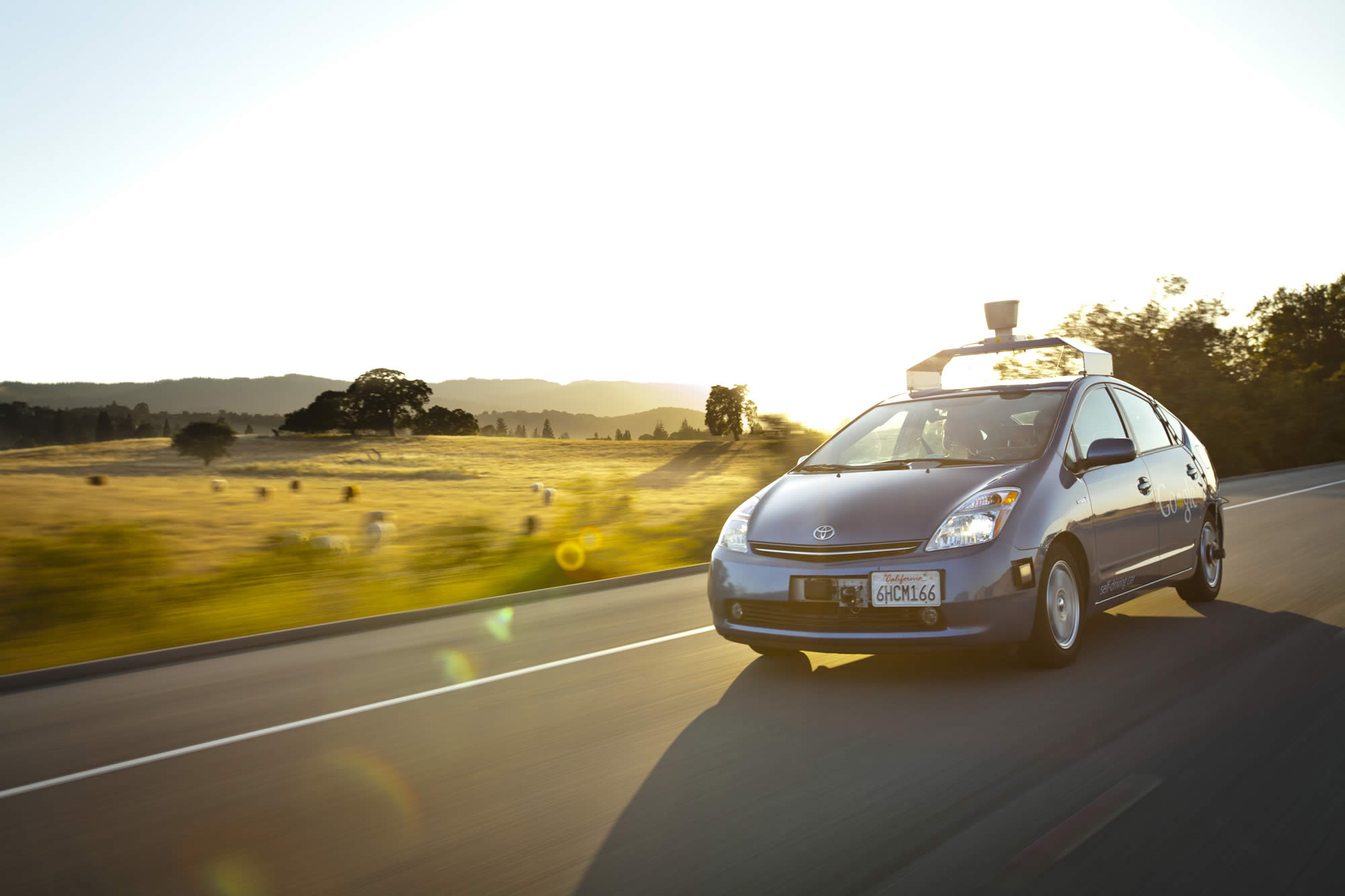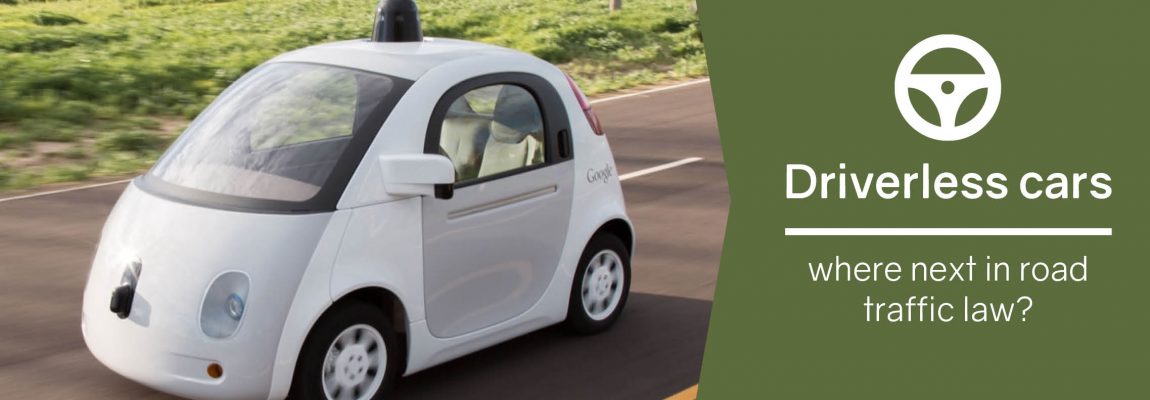
Driverless cars
All the talk these days – so far as the future of driving is concerned – seems to be on the topic of driverless cars or autonomous vehicles. Google has been in the forefront of the development of a driverless car and the British Government has recently given a significant boost to this new type of vehicle by announcing early trials on public roads, suggesting that progress in this field is likely to be quite swift.
Well, I think it is likely that quite soon urban areas will have driverless cars on hand and a completely new form of vehicle ownership could be on the horizon too.
Of course, there are lawyers like me who can look at that bulbous little driverless vehicle that Google developed in-house and consider that it bears more than a passing resemblance to a blancmange mould compared to a proper car. It’s not just the method of driving that is changing, it will also mean that conventional cars will change in appearance as well, particularly in an urban setting. It’s probable that we will get used to pod-like cars being operated routinely in city centres and outlying urban areas where space is at a premium. The car will drive itself and, more important perhaps (bearing in mind the urban location), it will park itself as well. To be fair to this new technology, that sounds like a very welcome move indeed!
[youtube height=”HEIGHT” width=”WIDTH”]https://www.youtube.com/watch?v=CqSDWoAhvLU[/youtube]
All of this is potentially a seismic change for road traffic law.
Could the time soon come when allegations of speeding, careless driving and even driving with excess alcohol will be extremely rare and unusual occurrences?
I personally don’t think so; I suspect it will be many years before there is a significant shift in vehicle ownership and driving habits, however it is going to start happening and the legal profession needs to be ready, even if the process is likely to be gradual.
It will take many years for large numbers of drivers to conclude that they are better off spurning car ownership and, instead, embracing (say) membership of an autonomous vehicle club of some sort. Certainly, for those drivers who live outside towns and cities it will be nigh on impossible to join a viable autonomous vehicle club, and ownership of a good solid car will remain the obvious and indeed sensible solution to their needs. Thus, the present laws on driving will long continue to operate with modifications, just as happens at present.

However, this brave new world will not be perfect, and Utopia is still some way off, even with the best efforts of the present Government. The operation of a Google driverless car may come with its own set of problems; in Mountain View, California, one such car collided with a bus on 14th February this year, tearing off its radar, leaving some dents and flattening a tyre in the process. Google unusually accepted some responsibility for the incident although the Claims Adjuster was yet to apportion blame. Quite a first for the average Claims Adjuster, one might say, and potentially it will be quite a first when a lawyer who specialises in road traffic law is asked to advise if and when such incidents occur over here!
Among the issues the road traffic lawyer will have to consider will be whether there was a passenger in charge of the vehicle and taking responsibility for its progress from start to finish? Was the passenger in the front seat or was he or she sat at the back, watching a film or absorbed in social media? Or maybe, dare one mention it, he or she was drinking? What will be the consequence of using one of these vehicles after a night on the razzle? Will the welcome practice of a nominated driver fall by the wayside once these vehicles achieve critical mass on our roads? Has there been adequate training in the operation of the vehicle and what does the individual’s driving licence have to say about their operation?

Accidents will continue to happen and people will act stupidly aboard these vehicles regardless of new technology. The lawyer will continue to have an important role to play in advising clients who are unclear as to how they stand.
A road traffic lawyer is no more going to hold back the advance of technology than King Canute could prevent the incoming tide from washing over his legs as he sat upon his throne on the sea shore. No, lawyers will have to adapt to this brave new world and indeed those who embrace it and are able to keep abreast of the advances in technology will be the ones most likely to succeed.
To find out more about Driverless Cars check out the Google Self-Driving Car Project.
This article is intended for general information purposes only and shall not be deemed to be, or constitute legal advice. Newnham & Jordan Solicitors cannot accept responsibility for any loss as a result of acts or omissions taken in respect of this article or any external articles it may refer or link to.


